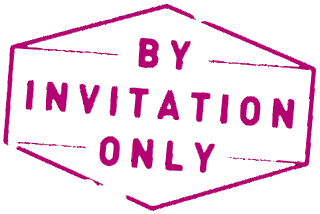Vocabulary around the house is an situation when we use english for everday in our hole life and we spelled the grammar well. Begin in our daily life at home e.g. with our parents,friends,bro,sister,grandpa,grandma,or maybe with your teachers? then, your neighboor,your lab partner,etc
Attic | People store things in the attic. |
Ballroom | A room in stately homes where rich people dance and concerts are held. |
Box Room | A small room used for storage. |
Cellar | Underneath the house. |
Cloakroom | A small room where people put their coats. |
Conservatory | A greenhouse attached to a house for the display of plants. |
Dining Room | |
Drawing Room | A room in stately homes where rich people entertain. |
Games Room | A room in large houses where games are played. |
Hall | The entrance passage to a house. |
Larder | A small room used for the storage of food. |
Library | A room where books are kept. |
Lounge | Another name for living room. |
Music Room | A room where people play music. |
Office | A room where people work. |
Pantry | A small room used to store kitchen and dining items. |
Parlour | Old fashioned word for living room. |
Sitting Room | Another name for living room. |
Spare Room/ Guest Room | A room where guests sleep. |
Toilet | A room where people go to the toilet (often known as WC) |
Utility Room | A room where appliances such as washing machines are used. |
Things you may find around the house

Kitchen
* Table(s)
* Chair(s)
* Bin(s)
* Cooker(s) / oven(s)
* Microwave (oven)(s)
* fridge(s)
* dishwasher(s)
* Tap(s)
* Coffee maker(s)
* Food mixer(s)
* Coffee maker(s)
* Food mixer(s)
* Liquidizer(s)
* Saucepan(s)
* Frying pan(s)
* sieve(s)
* Kettle(s)
* teapot(s)
Things we do in the Kitchen
* People prepare food in the kitchen.
* People cook in the kitchen.
* People sometimes eat in the kitchen.
* People make coffee or tea in the kitchen.
* People put the food away in the kitchen cupboards.

Bathroom
* Chair(s)
* Basin(s)
* Bath(s)
* Toilet(s)
* Toilet roll(s)
* Toilet brush(es)
* hairdryer (hairdryers)
* toothbrush(es)
* Shaving foam razor(s)
* Toilet seat(s)
Things we do in the BathRoom
* People get dressed or undressed in the bathroom.
* People have a shave in the bathroom.
* People brush their teeth in the bathroom.
* People take a shower in the bathroom.
* People have a bath in the bathroom.

Bedroom
* Bed(s)
* Bedside cabinet(s)
* Bedside table(s)
* Dressing table(s)
* Wardrobe(s)
* Chest of drawer(s)
* Brush(es)
* Comb(s)
* Hair dryer(s)
* Pillow(s)
* Sheet(s)
* Clothes
Things we do in the Bed Room
* People listen to music in the bedroom.
* People sleep in the bedroom.
* People get dressed or undressed in the bedroom.
Rooms
* Living Room
* Settee(s)
* Armchair(s)
* Coffee table(s)
* Display cabinet(s)
* Hifi stand(s)
* TV cabinet(s)
* Television(s) / tv(s)
* Hifi(s)
* Speaker(s)
* Cushion(s)
* Rug(s)
Things we do in the Living Room
* People watch TV in the living room.
* People sit and read a book in the living room.
* People listen to music in the living room.
* Living Room
* Settee(s)
* Armchair(s)
* Coffee table(s)
* Display cabinet(s)
* Hifi stand(s)
* TV cabinet(s)
* Television(s) / tv(s)
* Hifi(s)
* Speaker(s)
* Cushion(s)
* Rug(s)
Things we do in the Living Room
* People watch TV in the living room.
* People sit and read a book in the living room.
* People listen to music in the living room.
| |||||||||||||||||||||||||||||
|---|---|---|---|---|---|---|---|---|---|---|---|---|---|---|---|---|---|---|---|---|---|---|---|---|---|---|---|---|---|












.jpg)



